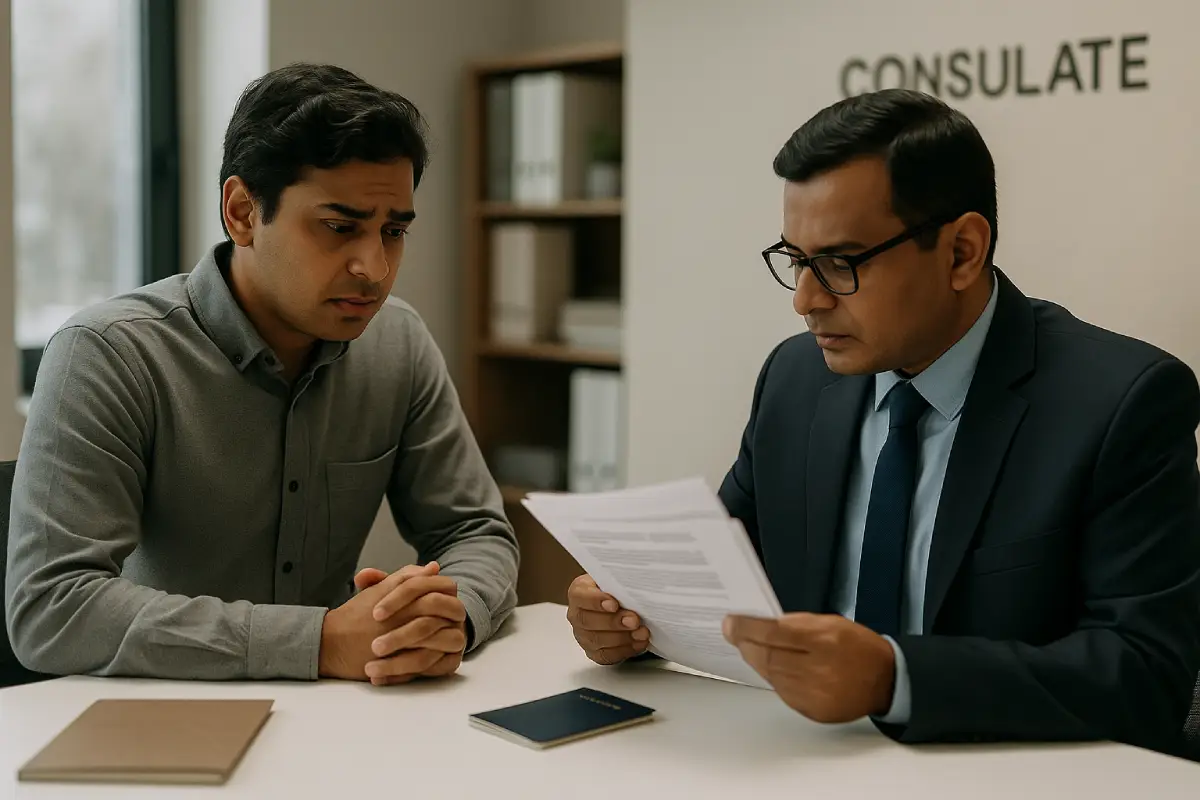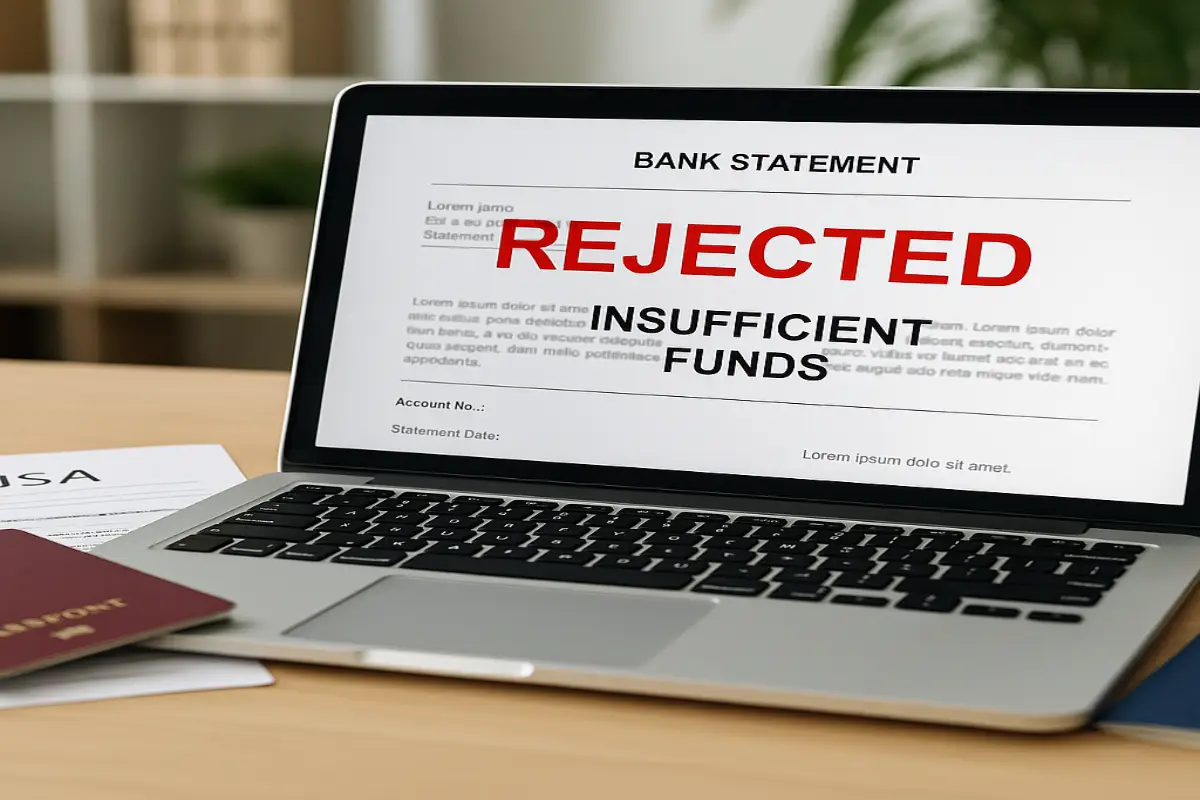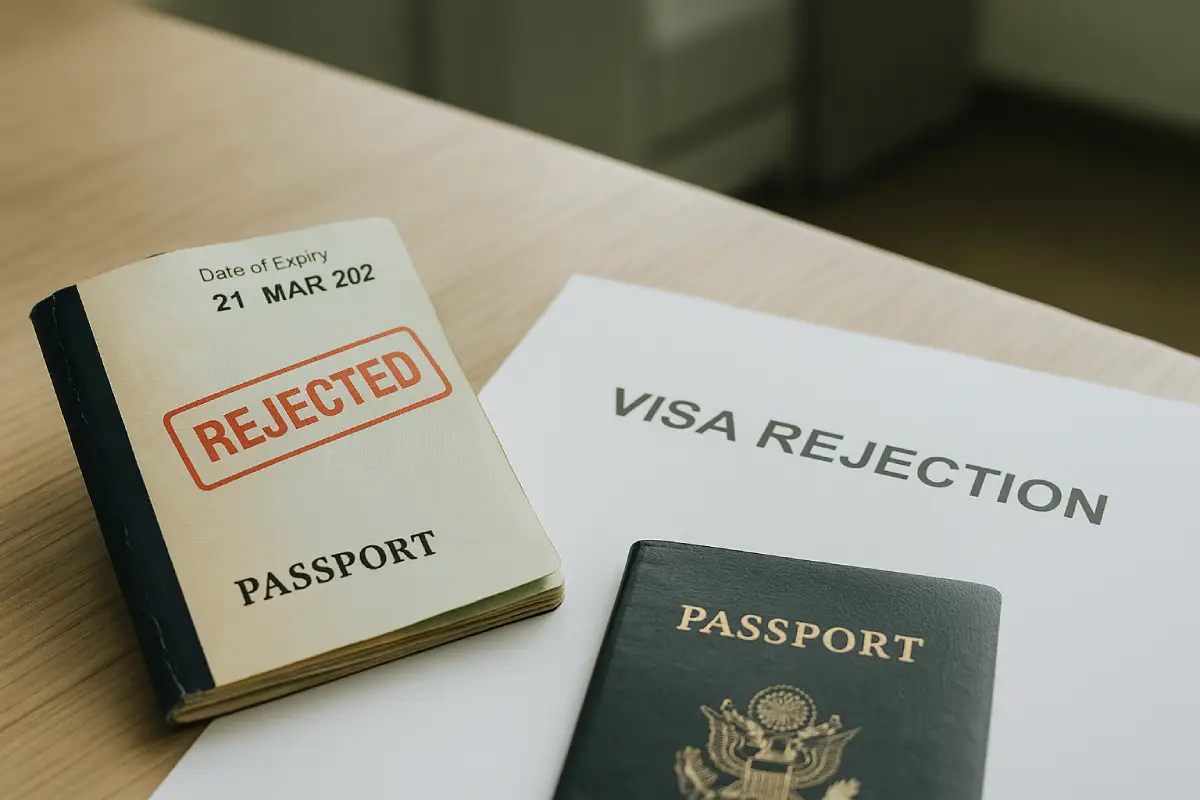Why Visa Gets Rejected – Main Reasons Explained
Applying for a visa is one of the most important steps when planning international travel. Yet, many applications are denied each year for reasons that could have been prevented. Understanding why visa gets rejected is essential, not just to save time and money, but also to increase your chances of approval. By identifying common mistakes, you can plan better and avoid unnecessary stress.
Why Visa Gets Rejected More Often for Indian Travelers
In recent years, Indian applicants have faced higher rejection rates due to stricter immigration policies, incomplete paperwork, and unclear documentation. Even minor errors can lead to denial. This makes it vital to know the exact visa rejection reasons before applying.

Most Common Reasons Why Visa Gets Rejected
Visa officers review every detail of your application. Small inconsistencies, weak documents, or vague explanations can create doubts. Below are the main reasons why visa gets rejected and practical steps to overcome them.
Incomplete or Incorrect Application
Leaving mandatory fields blank, entering inconsistent details, or missing signatures can cause instant rejection. Always fill in forms carefully and review them before submission.
Violating Visa Rules
Every country has specific visa regulations. Submitting fake documents, skipping required steps, or ignoring embassy guidelines often leads to refusal and sometimes even bans on reapplication.
Weak or Incomplete Travel Itinerary
A clear plan demonstrates your credibility. Missing flight bookings, hotel confirmations, or mismatched travel dates are frequent visa rejection reasons. Submit a detailed, accurate itinerary to build trust.
Missing or Insufficient Travel Insurance
Several destinations require valid travel insurance. Not providing adequate coverage or skipping it altogether can be one of the key reasons why visas get denied. Even when optional, insurance strengthens your case.

Unclear Purpose of Travel
Your purpose must be specific and backed by documents. Admission letters, job contracts, or official invitations help. Vague or unsupported reasons often lead to doubts and rejection.
Passport Issues
A passport that is expired, damaged, or with insufficient blank pages is a common reason why visa gets rejected. Ensure at least six months of validity beyond your intended travel date.

Poor Application Timing
Applying too late or too early can hurt your chances. The safe window is usually 30–90 days before departure, depending on the type of visa.
Financial Instability
Embassies want proof that you can support yourself. Low balances, irregular statements, or unexplained deposits often result in refusal. Maintain consistent financial health at least three to six months before applying.
Criminal Record Concerns
Even minor past offenses may raise red flags. Consulates conduct strict background checks, and an undisclosed history can lead to immediate denial.
Weak Sponsor Documentation
If a sponsor is funding your trip, their credibility will be verified. Inconsistent financial or legal records on their part may negatively impact your application.
No Proof of Return
Visa officers must believe you will return home. Lack of job proof, property documents, or family ties weakens your case. Demonstrating strong home connections is crucial.
Previous Overstays
Overstaying a visa—even by a few days—can hurt future applications. Immigration authorities share such data globally, affecting approvals in multiple countries.
Health-Related Issues
Some countries require vaccination records, medical certificates, or specific test results. Missing or inaccurate health documents may cause rejection.
Poor Visa Interview Performance
Your interview can make or break your application. Nervous, vague, or inconsistent answers reduce confidence in your case. Stay calm, be truthful, and align responses with your documents.
Visa Refusal vs. Visa Rejection
Although both terms mean your visa wasn’t approved, there is a difference:
- Visa Refusal: Usually linked to missing paperwork or minor errors. Often, you can reapply after fixing these issues.
- Visa Rejection: Indicates serious concerns such as fraud, misrepresentation, or security risks. In some cases, this may limit or prevent reapplication.
How to Improve Your Chances of Approval
If you want to avoid visa rejection reasons, keep these points in mind:
- Fill out forms accurately and completely
- Attach all supporting documents
- Show steady financial proof
- Provide strong evidence of return to your home country
- Be truthful in your visa interview
What to Do If Your Visa Gets Rejected
A rejection is not the end of your travel plans. Read the rejection letter carefully to understand why visa gets rejected in your case. Fix the identified issues, gather stronger documentation, and reapply. Many applicants are approved on their second attempt with better preparation.
Frequently Asked Questions (FAQs)
1. How do I know if my visa is rejected?
You will receive an official notification via email, letter, or through the embassy’s portal. Always check all communication channels.
2. What are the most common reasons why visa gets rejected?
The main reasons include incomplete applications, lack of financial proof, unclear travel intent, invalid passports, or previous overstays.
3. Can I reapply after a visa rejection?
Yes, most applicants can reapply immediately unless a waiting period is specified. Addressing the issues first improves your chances of approval.
4. Does a visa refusal affect future applications?
It may, especially if the refusal was due to false documents. Always disclose previous refusals honestly, since consulates can access your history.
5. How can I avoid visa rejection?
Be accurate with your application, maintain strong finances, explain your travel intent clearly, and be honest during the interview.
6. Do visa officers check travel history?
Yes. Many consulates review past travel patterns, including overstays or violations in other countries.
Conclusion
Knowing why visa gets rejected helps applicants avoid common mistakes. With complete documentation, financial stability, and transparent communication, your chances of success increase significantly. Careful planning is the best way to ensure your travel plans stay on track.
Don’t let errors stop your travel dreams. Get expert help from Savi Forex to strengthen your application, avoid common mistakes, and secure your visa faster. Contact us today for professional guidance.
Explore More with Savi Forex:







